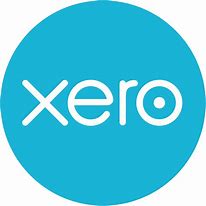FAQs
FAQs
What is a micro-entity?
Micro-entities are very small companies. Your company will be a micro-entity if it has any 2 of the following:
- a turnover of £632,000 or less
- £316,000 or less on its balance sheet
- 10 employees or less
If your company is a micro-entity, you can prepare simpler accounts that meet statutory minimum requirements and send only your balance sheet with less information to Companies House.
When do I need to file accounts?
Unless you are filing your company’s first accounts the time normally allowed for delivering accounts to Companies House is 9 months from the accounting reference date for a private company.
If you are filing your company’s first accounts and those accounts cover a period of more than 12 months, you must deliver them to Companies House within 21 months of the date of incorporation for private companies or 3 months from the accounting reference date, whichever is longer.
Will I be fined for filing late?
Failure to deliver accounts on time is a criminal offence. In addition, the law imposes a penalty for late filing of accounts on the company. The amount of the penalty depends on how late the accounts arrive but will range from £150 to £1,500 for private
companies.
Are there any entities that cannot prepare micro-entity accounts?
An entity cannot prepare and submit micro-entity accounts if it is, or was at any time during the financial year, one of the following;
- a limited/
qualifying partnership
- a public limited company
- an overseas company
- an unregistered company
- a company authorised to register under section 1040 Companies Act 2006
- a charitable company
- a company that is excluded from the small company’s regime under section 384 Companies Act 2006, or is excluded from being treated as a micro-entity under section 384B Companies Act 2006.
Do
I
qualify as a micro-entity every year?
Generally, a company qualifies as a micro-entity in its first financial year if it fulfils the conditions in that year. In any subsequent years a company must fulfil the conditions in that year and the year before.
However, if a company which qualified as a micro-entity in one year no longer meets the criteria in the next year, it may continue to claim the exemptions available in the next year.
If that company then reverts back to being a micro-entity by meeting the criteria in the following year, the exemption will continue uninterrupted.
What do micro-entity accounts show?
A micro-entity is required to prepare accounts that contain the following elements:
- A balance sheet that complies with one of the specified formats given in the relevant regulations, along with any footnotes
- A directors’ report
- A profit & loss account that complies with the specified format given in the relevant regulations
- An auditors report, unless the company is claiming exemption from audit as a small company
- Any notes to the accounts
- The balance sheet must contain a statement in a prominent position above the director’s signature and printed name that the accounts have been prepared in accordance with the micro-entity provisions. This statement should appear in the original accounts as well as the copy sent to Companies House.
Micro-entities do not have to deliver a copy of the directors’ report or the profit and loss account to Companies House.
Do I need to pay Corporation Tax?
Corporation Tax is payable annually and based on the profit that your company makes. Your profit will include a deduction for salaries paid but exclude dividends paid. The Corporation Tax needs to be taken into account to determine what profits remain available to pay via dividends. A very simple example would be, if your company has made £10,000 profit, a maximum of £8,100 could be withdrawn as dividend, as £1,900 Corporation Tax would be payable.
Do I need to submit a Corporation tax return?
Your company must file a Company Tax Return even if you make a loss or have no Corporation Tax to pay.
The deadline for your tax return is 12 months after the end of the accounting period it covers. You’ll have to pay a penalty if you miss the deadline.
There’s a separate deadline to pay your Corporation Tax bill. It’s usually 9 months and one day after the end of the accounting period. You’ll have to pay penalties if you do not file your Company Tax Return by the deadline.
Do I also need to pay Income Tax and National Insurance?
Salaries and dividends drawn from your company are subject to Income Tax. Your salary should be paid net of Income Tax, via PAYE, unless you meet certain criteria to not register for PAYE, in which case Income Tax will be paid via Self Assessment. Most individuals can earn £12,500 per year free of Income Tax, after this, Income Tax is payable at different rates depending on the level and type of earnings, for example you could pay 20% Income Tax on salary and 7.5% Income Tax on dividends as a basic rate tax payer.
Salaried income is also subject to National Insurance, which is paid by both the employee and the employer. Generally, the employee will pay 12% on annual earnings over £9,500 and the employer must pay 13.8% of the annual earnings above £8,788. Along with Income Tax, National Insurance will be paid via PAYE.
Do I need to register for VAT (Value Added Tax)?
If your company generates turnover of £85,000 or more per year you must register for VAT and start charging generally 20% VAT on top of your net invoice amount. As well as charging customers VAT you can also claim back the VAT on your purchases.
VAT returns must now be filed through HMRC’s new Making Tax Digital initiative, which will mean using MTD software.
What are legitimate business expenses?
Legitimate business expenses incurred with no personal element can be reimbursed to you without being subject to tax. Common expenses include mileage to and from a client’s office, sustenance whilst working away from home, hotel stays, office consumables, insurance, telephone bills and internet fees. Given that expenses can be offset against company profits, thus reducing corporation tax, you should ensure you’re recording and claiming all legitimate business expenses, including the following, where applicable:
Mileage – you can claim for the mileage incurred when travelling to and from a temporary client’s office (not your usual place of work), with tax-free rates up to 45p per mile. Remember to include your car parking and congestion charges, but you cannot claim once your workplace is no longer considered temporary.
Computer hardware and software – you can claim for IT equipment which is solely for business use.
Business phones / internet – you can claim for one mobile phone per employee and internet costs for business purposes.
Professional memberships and subscriptions – there are certain recognised professional bodies for which you can claim back the membership fee.
Home office - If you primarily work at your client’s site and only use your home office for managing your business, so it is not a 'dedicated home office' you can claim £6 per week for incidental home expenses.
What is IR35?
The UK's IR35 legislation ensures that contractors pay the same Tax and National Insurance contributions as an equivalent employee.
The off-payroll rules apply if a worker provides services to a client through an intermediary (Personal Service Company (PSC)) but would be classed as an employee if they were contracted directly with the client. It is important to determine if you are inside the IR35 legislation, as this can limit how you can extract funds from your company.
Before April 2021 it is the limited company’s responsibility to decide its own employment status for each assignment. New IR35 changes will be implemented in April 2021 for the private sector that will transfer responsibility from contractors to large and medium companies (engagers of contractors) to assess IR35. This will bring the private sector in line with the public sector. From April 2021, it will be the engager's responsibility to determine whether the Off Payroll Working Rules apply.
Companies can refer to the HMRC guidance and the employment status for tax (CEST) tool, which shows the indicators that HMRC are looking for. If you are still not sure, make sure you get some expert help!
We integrate with the following accounting software (and more):




Why choose us?
Skilled professionals
You will get a designated qualified accountant available to talk whenever you need
Great value
We keep prices extremely low by using the latest technology to speed up our processes
Ongoing support
Advice and guidance available from your accountant once you have signed up with us!
No commitment
Try us and see what you think! Just pay for the service you need - there's no ongoing monthly charges!
Clear and open
No hidden charges! Everything is clear and agreed upfront!
We are UK based!
We never outsource to consultants based outside of the UK as some of our competitors do!
